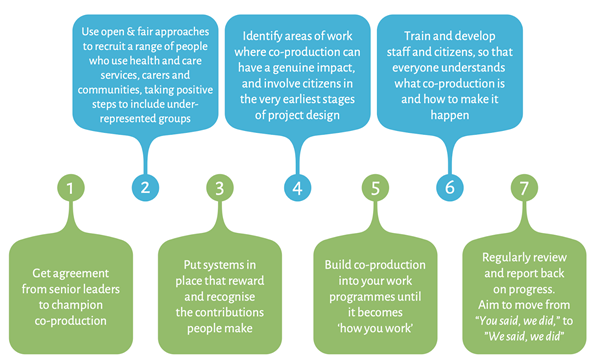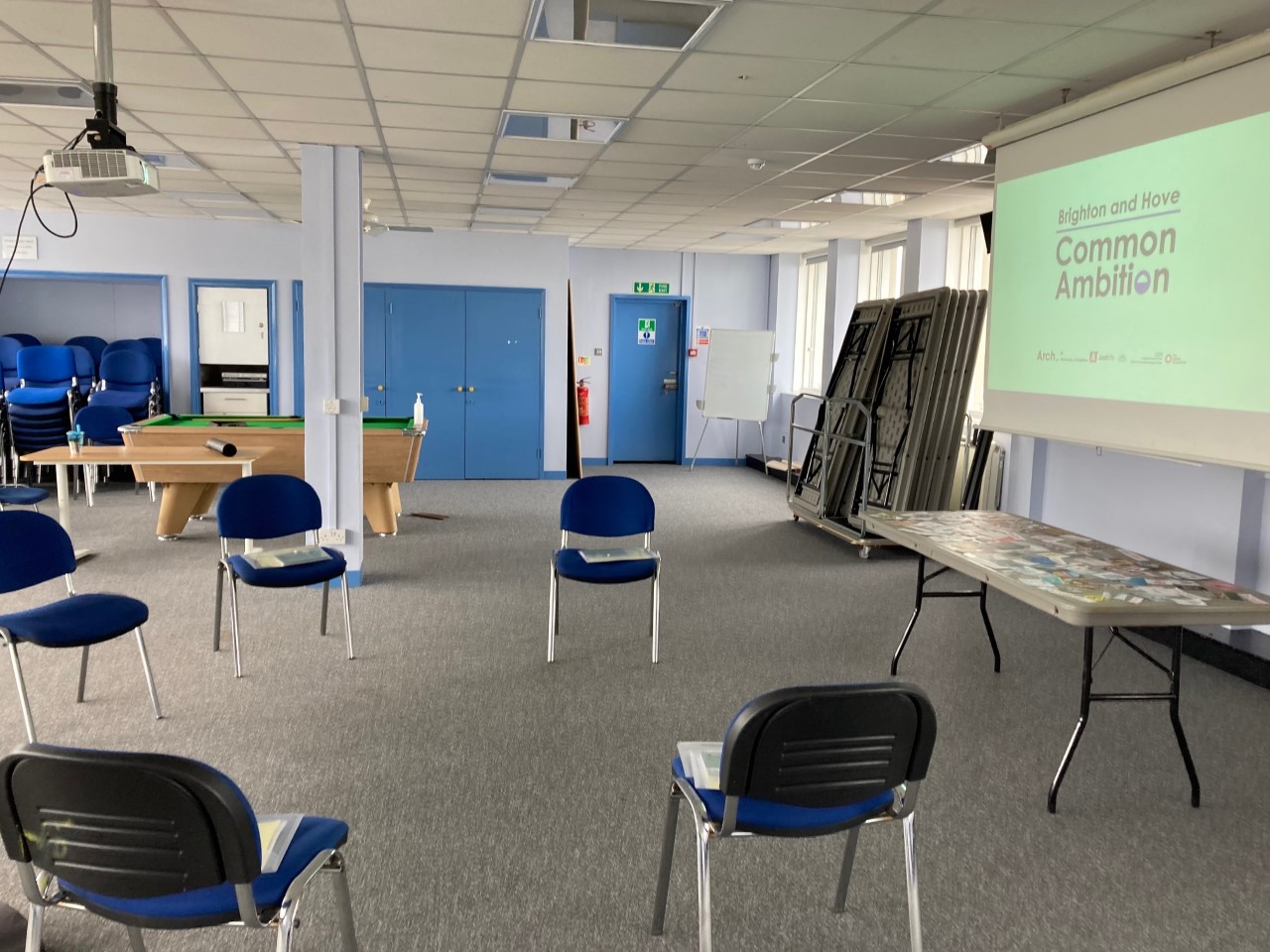A blog from our BHCA Project Manager, Nicky Pyper
Taking our first steps in co-production
Setting up the Brighton and Hove Common Ambition Lived Experience Steering Group
The School Clinic Morley Street Brighton BN2 9DH
All around the country, healthcare is being transformed thanks to a very simple idea: that patients should be involved in, and have a say about, the services that are provided for them.
“Over the last 10 years, as a frontline worker, I have seen many people die preventable deaths far too young on the street.
Those with lived experience are the people who have seen the gaps in healthcare services in a way those without would not. The knowledge of what has and has not worked is what can help make real change.
I believe co-production is really important because as a frontline worker I might see these gaps more than most but cannot really know what it is to have experienced it personally. I get to go home at the end of the day or leave appointments and move on to the next.”
Sara Emerson,
Health Engagement Team Leader, JustLife Brighton
This is at the heart of our mission at the new Brighton and Hove Common Ambition (BHCA)Project which states that we ‘will work with people with lived experience of homelessness, frontline providers and commissioners to develop a new approach to co-production within homeless health services, in order to improve health services and outcomes for people experiencing homelessness in Brighton & Hove’.
This is the first in a series of blogs in which we will share our insights and experiences about how we are going about doing this, and how it is contributing to improved healthcare for the people experiencing homelessness in our city.
Firstly, it was important that we all aligned on what co-production was. Although it is seen as important, it is a relatively new concept in health services. We have used the NHS England and NHS Improvement and Coalition for Personalised Care model as a guide:
‘Co-production is a way of working that involves people who use health and care services, carers and communities in equal partnership; and which engages groups of people at the earliest stages of service design, development and evaluation. Co-production acknowledges that people with ‘lived experience’ of a particular condition are often best placed to advise on what support and services will make a positive difference to their lives.’
Their seven practical steps for co-production as shown below are particularly relevant to the work we will be doing.

The seven practical steps for co-production, according to the NHS England and NHS Improvement and Coalition for Personalised Care model
Having buy-in from senior leaders was critical, and started with the application to the Health Foundation’s Common Ambition Programme, which is supporting co-production in health services around the country. Then we needed to form our partner board, composed of Arch Healthcare, Justlife, University of Brighton, Brighton and Hove CCG and Brighton City Council Public Health department. The burning question from the very start from this group was, what is our co-production strategy? Clearly, we couldn’t claim to be a bona fide co-production project by developing our strategy on our own!
Our next step was to recruit people who had lived experience of the services, building a lived experience steering group for the project. It was crucial to the project that we were guided by those with lived experience and that this voice was central to the project from the very beginning. We needed people with lived experience to work with us, bringing their knowledge and experience to inform the project and in particular the co-production strategy. But where to start?!
What followed was a 3 month engagement drive, reaching out to local organisations and services working with people experiencing homelessness and existing peer groups, flyering supported accommodation, health and community services and developing a referral/self referral process to draw people with lived experience of homelessness into our project.
This wasn’t without its challenges, particularly during lockdown! We had to do this largely using the virtual world. To this end we created a digital launch and spent hours on Zoom speaking with different organisations and existing peer groups, as well as harnessing the power of word of mouth and flyers to ensure we did not exclude those who didn’t have access to digital mediums. Inclusivity was really important to the project, we wanted to ensure accessibility for all, regardless of age, sexuality, ethnicity and gender.
We took the plunge and booked in a first meeting, got a date in the diary and a venue booked. Our engagement work was paying off and we were seeing referrals and self referrals coming in. We met with each member individually before the group meetings, so that they had a clear understanding of the project and knew what being in the group would involve.

The meeting room ready to receive the steering group committee
We risk assessed the meeting, following guidance from co-production experts Fulfilling Lives South East (Fulfilling-Lives-Trauma-Informed-Social-Research-Guide-1.pdf (bht.org.uk) and designed the first meeting as an informal project get-together, with a focus on getting to know one another. We stocked up on snacks, post-its and got an agenda together.
But in the back of our minds were the constant questions: How do we ensure we get the concept of co-production effectively as a group? How do we ensure a co-production culture from the very start? What if this appears tokenistic? What if the group feel we are taking too much control? Are we doing co-production the right way? What if no one even turned up? The nerves before our first meeting were real!
We couldn’t have asked for a better first meeting. We kept the agenda light: getting to know one another, information about the project so far (including a discussion on co-production) and personal project vision boards. (image below: the facilitators’ vision boards for the first meeting)
What was very clear is that everyone had something to say about the project, a reason for wanting to be a part of it and the valuable insights that the project really needed. Participants were finding their feet in this setting, as were we. But as a group we navigated the meeting, giving one another the space to speak and be heard, sharing responsibilities and making agreements about the meetings going forwards.
The big takeaway was that by giving space to each individual, putting in the time to meet new members before the meeting and putting forward questions rather than answers, the values around co-production were already present in the group and we would be able to develop this further with more discussions as a group. We didn’t need to overthink it and put pressure on a co-production strategy, this would all come. What we had was a group of passionate people all wanting to work together to improve the health services and all we needed to do was listen and trust in one another. We all left the room with an understanding of other perspectives and new ideas already bubbling.
It definitely felt like the start of something significant.
We hope to see the steering group continue to grow in numbers and confidence. We have built trust and an environment where we can work together equally. We have taken our first step and laid the foundations. Now we need to start building the project and delivering impact together.
In the spirit of learning as we go, we warmly welcome any thoughts, ideas and suggestions on our experiences so far. And keep an eye out for the next blog in the series which will be published soon.
Visit our dedicated page for more information on the Brighton & Hove Common Ambition project.